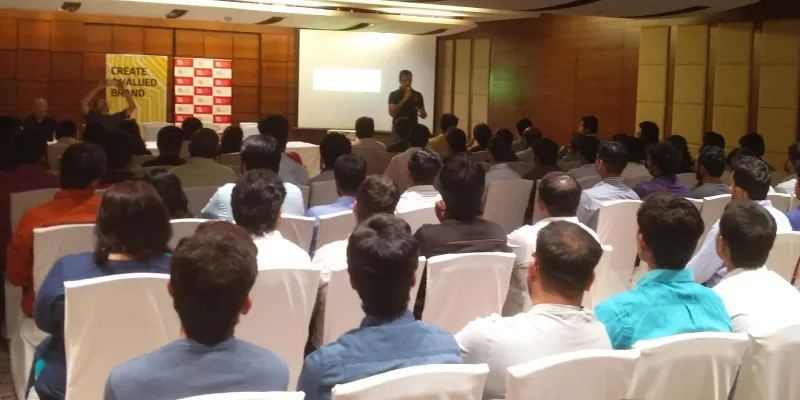Scaling your startup: focus on brand, not just technology
This article is sponsored by Brand Launch Centre.
Product launch and team formation are just the early part of the startup journey – the real hard slog comes with scaling up, building a strong technology foundation, and creating a powerful competitive brand.
YourStory launched a series of meetups in Pune and Mumbai, along with the Brand Launch Centre, on the important role of brand identity in a startup’s long-term journey.

“If you want to scale in a sustainable manner, what you are looking at is a brand and not just a product,” advised Sameer Desai, CSO, Brand Launch Centre (BLC). For example, Google is not just another search engine, but a computing and communication platform offering everything from cloud storage to email solutions. “Once you have the brand, you need to figure out what business are you really in and the experience you are providing to your customer,” added Sameer.
A number of useful online tools have emerged to help startups understand the different dimensions of scaling, such as the Business Model Canvas. From pilot product to brand strategy, founders must be clear on what their unique attributes and culture are.
BLC offers startups ecosystem support for HR staffing, customer centric focus, finance planning, funding approach, and the necessary dashboards for visualisation and monitoring. Traction is a good start to demonstrate customer value, but should be followed up with a clearly differentiated promise.
“We worked on our product for six to eight months before going for angel funding. We acquired a few customers before going for the next round of funding, which we used to scale up,” recalled Milind Borate, Co-Founder and CTO, Druva. While scaling up, the focus should not be just on funding tranches but unit economics and path to profitability.

Clarity of purpose is important during the ups and downs of the startup journey. “Ask yourself, why am I doing this business and what is the problem I am trying to solve? If you find the problem you are trying to scale is not large enough, chances are pretty slim that you will scale,” explained Vishwas Mahajan, Trustee, TiE Global.
Many companies do very similar things and compete with each other for a very small market; collaboration and even mergers are a good approach to scale. Emerging tech tools also help startups scale, such as SaaS platforms and cloud hosting. “The cost of operations for a startup has come down and the barrier has gone down. You can start without having any big capital cost. It allows you to experiment with a number of things without having to commit to it in the long term and try out the product market fit,” advised Vishwas.
“Understand what is core to your business and keep adding to that. That will help you scale. Take a helicopter view of what you have being doing,” he added. Intuition and prior experience should be augmented with solid data and verifiable hypotheses.
“Collect all the data points and analyse. Anything that you can do to automate processes will help you scale,” said Vishwas. One of the startups TiE Pune is working with has used CCTVs to bring down the number of staff like security and receptionists.
Outsourcing is also a path to scale. “Rather than building everything in-house, you can outsource certain things which helps in saving time and providing faster service to your customer, which is what matters the most,” said Sameer.
Despite a wealth of online advice and case studies, many startups continue to flounder at scale stage. “They don’t fail because they don’t have a great product, they fail because they haven’t invested enough in sales and marketing. They fail because they haven’t anticipated the cash flow from their business,” cautioned Vishwas.
Companies should definitely invest in CRM, and prioritise the spend across tasks. They may often spend on developers without a second thought, but agonise over choice of social media marketing agency.
Scale is often confused with size of customer base; customers are certainly important but so is the sustainability of the run rate and scope of product-market fit. This applies to technology, team structure and profitability. Tech oriented founders tend to overlook the importance of sales and marketing.
“The product market fit, resources and infrastructure should be in place before scaling up,” summed up Sameer.







